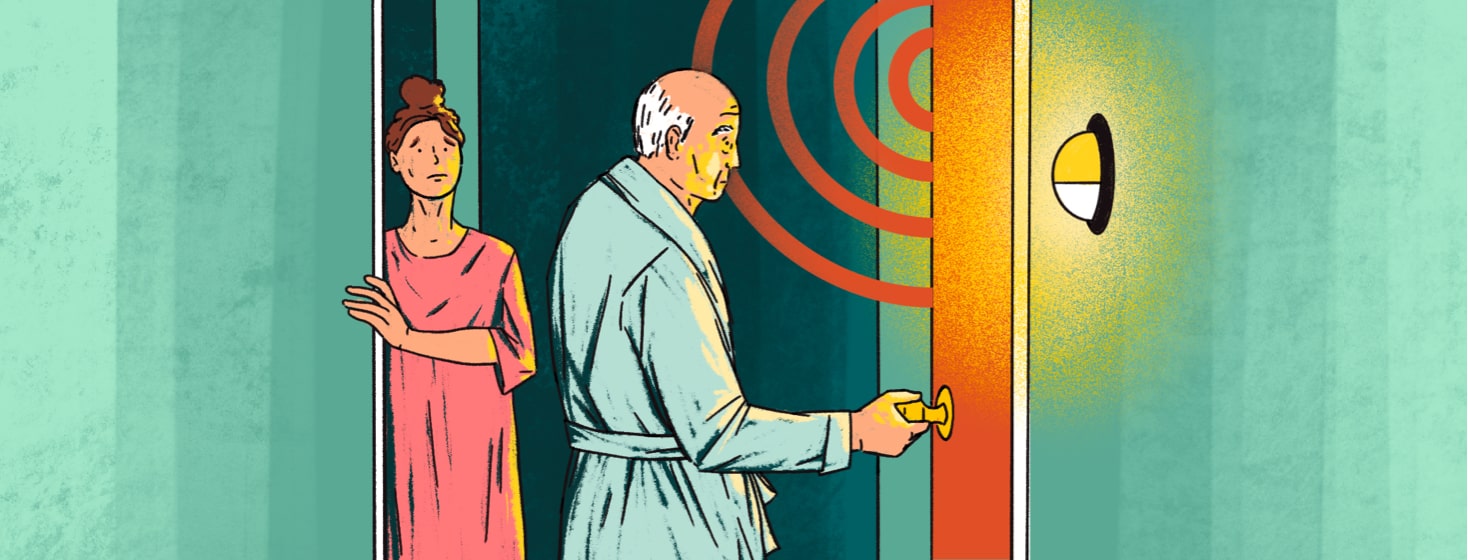Home Modifications for Alzheimer's Disease
Many caregivers prioritize keeping a loved one with Alzheimer's at home. The challenge becomes keeping your loved one safe in their home. Remaining in familiar surroundings can enhance the quality of life for the person with dementia.
New caregivers need ideas for how to start this process. So we asked the Facebook community to tell us: "What home safety modifications should new caregivers know about?"
Veterans on this journey had great tips for caregivers just starting. Here is what they have learned about making your home dementia-friendly.
Childproofing
There are ways to help your loved one with Alzheimer's avoid confusion in their space. These can allow your loved one more freedom to stay where they are comfortable.
Employ the same techniques you would for childproofing a home. Put away objects that could hurt them. Keep sharp objects and drugs – whether prescription or over-the-counter – away and out of reach. Bring out things like creams, lotions, and toothpaste as needed. This will prevent your loved one from accidentally using a product in a way that could harm them.
"Check their room for anything they can mistakenly use and possibly harm themselves. My mom needs eye drops for glaucoma every day; I happened to catch her trying to use liquid white-out as her eye drops. I went through her room thoroughly and removed all medicines, ointments, and all sharp things - scissors, nail cutters, everything."
"We had to keep sharp objects (knives, scissors, etc.) out of reach. Prior to keeping these away, we woke up one morning with a bolo beside our patient with Alzheimer's. She insisted that there were 'bad guys' the night before, and she had to protect us and drive them away."
Mobility safety
Home modifications can prevent falls and enhance safety when your loved one is moving around their home. Keep the space clear of tripping hazards, like rugs, cords, or clutter. Install grab bars along walls and in the shower to keep your loved one steady. Gating off stairs or areas that are unsafe may discourage your loved one from going any farther.
"Clear pathways, bed railing to eliminate falling out of bed, a gate on stairs."
"If walking is unsteady, pick up all rugs. Make sure no cords are in traffic pathways."
"Everything... Safety door handles, cameras, bathtub railings, bed rails and positioning, stair banisters, etc.!"
"Grab bars everywhere!"
Locks, alarms, and monitors
Many people with Alzheimer's tend to wander. If they leave the house unsupervised, they may not know how to get home. Installing locks high up on doors may deter your loved one from getting out. Many people with dementia will not look beyond the doorknob. Security cameras and door alarms can alert you if your loved one is trying to leave.
"Locks high up on exit doors."
"Use Ring cameras inside and doorbell cameras to help monitor and keep safe day and night by letting you have notifications on your phone and be able to see the live feed on your phone anytime."
"Put safety locks and an alarm that lets you know if any door opens."
Other practical tips
Modifying the space to meet your loved one's needs is an evolving process. As the disease progresses, their needs will change. Think through what will give them ease and comfort. Make the adjustments you need for peace of mind. Here are a few more tips the community shared:
"Be diligent about their medications. Check on possible old food in the refrigerator."
"ID bracelet with their name, my name, and contact info, auto night-lights in bathroom and room that they walk thru to get to the bathroom. We keep small snacks in her room that she eats during the night. Only keep current season clothes available. I hang all her clothes, so it's easier for her to choose."
"Childproof the kitchen."
"Unplugged stove."
"Supervise showers and baths. They can turn the water up and not realize how hot it is, causing weakness or burns."
Home- and community-based services
Home- and community-based services (HCBS) can help the person with Alzheimer's stay in their home. Medicaid administers these services. HCBS offers health services and human services.1
Health services provide home healthcare. This can include:1
- Various therapies
- Medical equipment
- Skilled nursing care
Human services cover, among other things:1
- Home modifications
- Meal delivery
- Adult daycare
- Transportation
Each state has different eligibility requirements. Often, you must apply to a waiver program. Only a certain number of slots are available each year. Use your loved one's doctor or hospital social worker as resources. They can help you gather information for your area or state.1
- Home- and Community-Based Services. Centers for Medicare and Medicaid Services. Available at https://www.cms.gov/Outreach-and-Education/American-Indian-Alaska-Native/AIAN/LTSS-TA-Center/info/hcbs. Accessed 11/2/2022.

Join the conversation